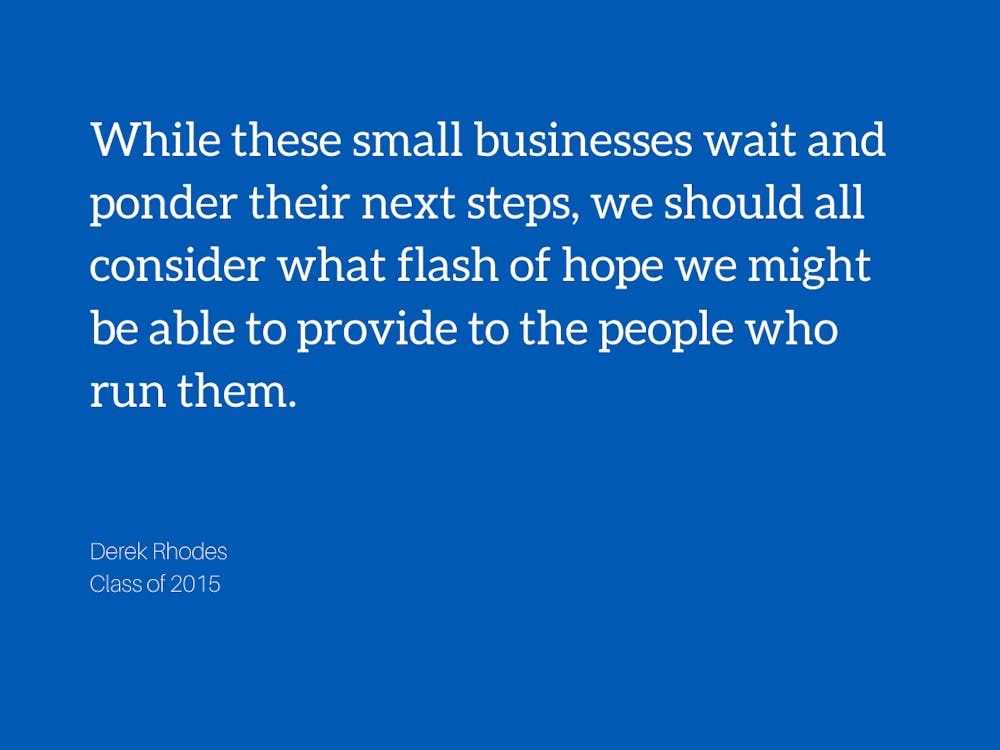Last week, Duke launched three equally-important philanthropic initiatives to support those impacted by the coronavirus. One of the initiatives, the Duke-Durham Fund, aims to tackle the broader impact of COVID-19 by committing $5 million to local nonprofits, community-based organizations and small businesses such as barbershops, restaurants and bars. As all of us rightfully focus on the very immediate health crisis in front of us, meaningful contributions to the Duke-Durham Fund could lessen the impact of another potential crisis on the horizon for Durham.
Durham County Manager Wendell Davis warned this week that the loss of sales tax revenue (due to stay-at-home orders) would force the city to reevaluate previously planned projects like infrastructure enhancements and enhanced recreational programs for children. No one yet understands the full damage that the coronavirus could do to local governments, but the N.C. League of Municipalities expects financial problems for local governments well into the next fiscal year. This will surely impact the already limited resources that are provided to small-business owners who have helped transform the city.
My commitment to Durham is no new fad. In 2013 while serving as DSG’s vice president for Durham and Regional Affairs, I wrote about how on-campus discourse about Durham concerned me. I advocated for a new form of engagement with the city that had nurtured me for twenty-one years as both a native and student. However, it is not necessarily my bias as a native that fuels my current support. It is my connection to and engagement with the city during my time as a Duke student that compels me to donate.
After all, it is the city that has stood by our side in some of our toughest public moments as a University; a city that revisited noise ordinances so that we could ‘study’ a little louder at that off-campus house at our neighbor’s expense; it’s a city that ensured college students’ voices were heard by providing an on-campus early voting site; and, it is the city that supported DSG’s Durham and Regional Affairs team in 2013 when we lobbied local, small businesses to provide discounts to Duke students who dined with them.
As I think about the incredibly positive town-gown relations over the course of my four years at Duke, I am saddened that my friends and I will not have the chance to reunite in Durham for our Five Year Class Reunion. Places like the James Joyce, Dame’s or Beyu Caffe—where we would have nostalgically gathered this month—not only built the city’s reputation as the “foodie capital of the South,” but also gave us some of our most memorable moments as students. Their sheer existence is even referenced in our pitches to win over prospective students. Now, they wonder when and if their doors will reopen.
While these small businesses wait and ponder their next steps, we should all consider what flash of hope we might be able to provide to the people who run them. They’ve long been our neighbors and our biggest advocates. It seems, to me at least, that donating to the Duke-Durham Fund is a good place to start.
Derek Rhodes (T'15) is the author of the children’s book, Jimmy for the City. His website is www.derekrhodes.com.
Get The Chronicle straight to your inbox
Signup for our weekly newsletter. Cancel at any time.

